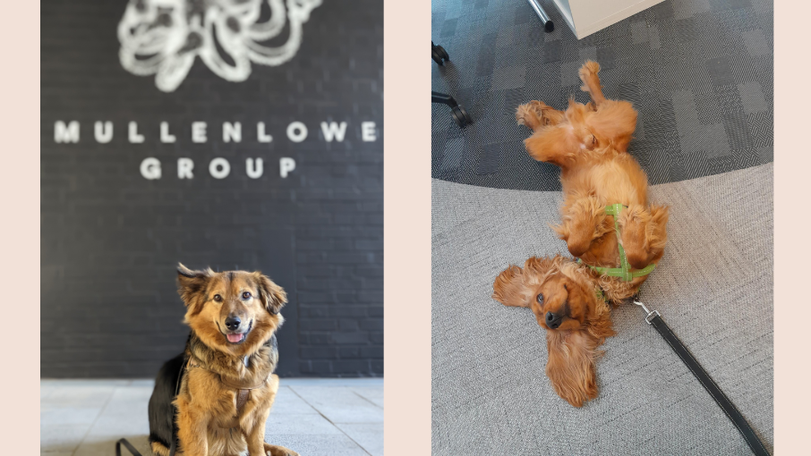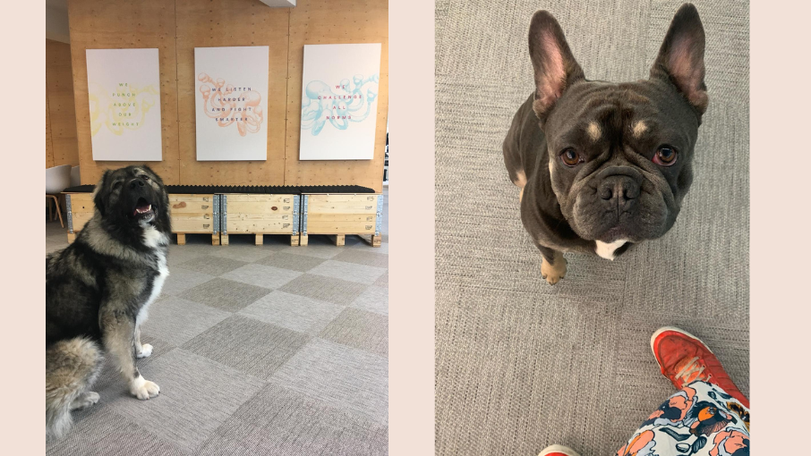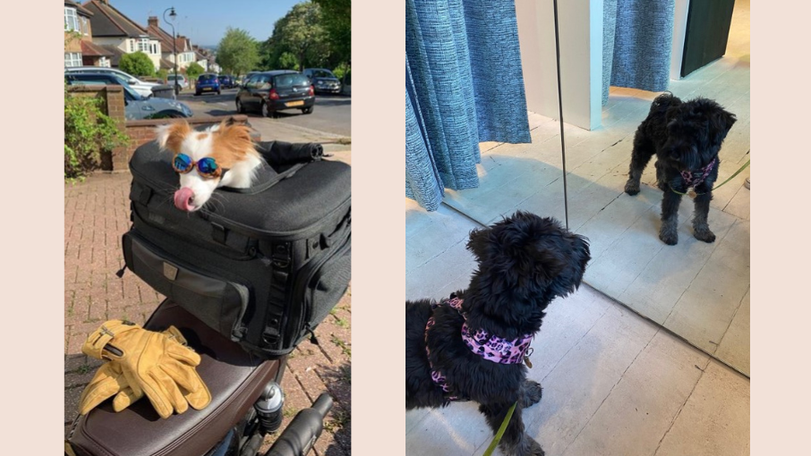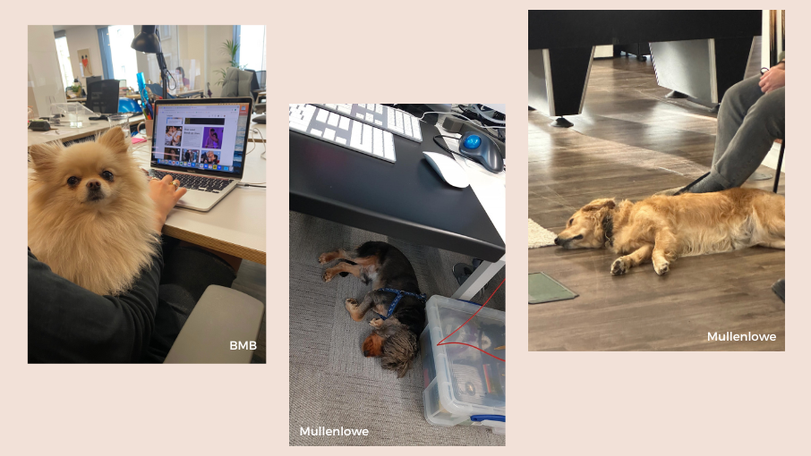
Jamie Street
Be More Dog: Do Pets In The Office Boost Creativiy?
Dogs are now familiar sight in many offices, but what's their impact on the way we work?
10 May 2023
Our furry friends have long been known as a source of happiness, helping us to de-stress, and forge better relationships with other people. But does all that that apply in the workplace?
Well VCCP embarked on a piece of research to find out if the presence of a canine in the office might help boost creativity.
And for pet lovers everywhere, the good news is that while dogs are not an immediate silver bullet, they are a contributing factor to increasing creativity in the workplace (especially during a new era of hybrid and flex working).
The #BeMoreDog study - the 'world’s first global study about the impact of dogs on human creativity in the workplace' - canvassed 57 creatives across eight cities to determine how our four-legged friends could help us change the way we work for the better.
Julian Douglas, International CEO of VCCP, said: “We found during the pandemic a lot of our employees had rescued or got pets for themselves and their families. The results of the study made us more welcoming of pets across all of our offices, especially since we know dogs' effect on happiness.”
Respondents in the #BeMoreDog report said that they looked forward to getting out of their seats and spending time with their dogs, taking them for a walk, and decompressing during a stressful work day. They also went on to report that they particularly looked forward to coming to work when dogs were in the office.
We asked agencies if these findings resonated across adland and whether, in the drive to attract staff back to the workplace, agencies are coming under pressure to accommodate dog-lovers?
Pedigree chums
Bringing pets to work has been a no-brainer for some employees who have spent the lockdown with their pets. And agencies have chosen to allow pets in the workplace as a way to make their employees feel more welcome and less apprehensive post-lockdown. But if you’re not dog-friendly, are you then missing out on an opportunity to further engage your employees - in the midst of a talent crisis, as well as missing this unique cultural experience of pedigree chums at work?
VCCP, for instance, has introduced a ‘puppy therapy’. It brought puppies in from a local shelter for employees to come and play with them as a moment of reprieve in their day and lifting the spirits of its workforce. That was the ‘aha’ moment for the #BeMoreDog research.
Meanwhile, Lucy Taylor, Chief Growth Office, MullenLowe says: “Our office has been dog friendly for the last five years, essentially through demand – people wanted to be able to bring their dog in and the majority of the office are big dog fans so we wanted to be inclusive.
At FCB “the very small act of making people smile means they definitely help boost employee morale, promote a positive experience at work, and significantly help reduce any stress,” says Katy Wright, CEO.
Whether between clients or colleagues, pets and furries are a great way to break the ice, says Sam Jones, Brand and Marketing Director, BMB. “We have lots of dogs in and around the office... Clients love them (mostly). They are instant chemistry builders.” MullenLowe adds: “People are more friendly and stop to take a break and talk to each other more. Dogs seem to break down barriers for new people ……. and generally initiate conversations.”
And let's not forget the original logo of Mother London - another dog-friendly agency - was an illustration of the partners' dogs. It probably would be a stretch to put a straight line between the dogs in the office and the agency's creative repute and business growth - but the sight of dogs roaming in and out of workspaces and lounging under desks can only be sure to send warm and furry signals.
How to bring your dog to work
To welcome pooches at work some agencies have started creating dedicated pet policies. Most often, a simple set of rules including registering the pets before bringing them into the office or always putting them on a leash and cleaning after them.
Lucy, from MullenLowe, told us: " We ask that dogs must be kept on the leash at all times when in the office. Some people might be allergic or indeed wary of dogs and we want to be respectful of everyone’s feelings. Oh, and you must clear up after your pooch.”
FCB London has had a pet policy dating back to 2017. Employees have to pre-register their pets at receptions and get a "doggy passport." The passport includes a picture of the dog, insurance documentation, proof of vaccination, microchip number, and approval from HR. Employees can only bring in their pets on Tuesday, Thursday, or Friday and the pets are limited to entering certain communal areas in the building.
Sam from BMB adds: “We love dogs in the office as long as they're not barking at clients or chewing up our pitch documents (thankfully neither has happened yet).”
While NCA has no set written policy for dogs "as there is usually one dog at a time in the office and the team can discuss with one another when they plan to bring their dog in”.
Bringing your dog to work is not an entirely new habit but several agencies are asking themselves how to combine dogs with open-plan offices, and with employees who are allergic, fearful or might even have religious objections. A few agencies expressed their regret at not having policies that could accommodate both dog-lovers and non-dog-lovers.
According to VCCP, governments need to work with landlords and building owners to create dog-friendly spaces, everywhere. “For a creative agency like VCCP, the importance of being in the office is integral to our process. So creating a space where people can thrive is important,” said Douglas.










